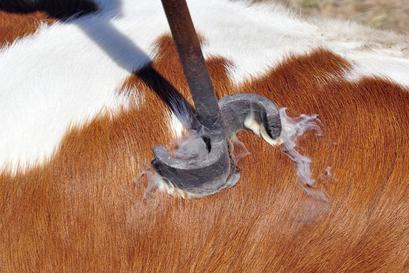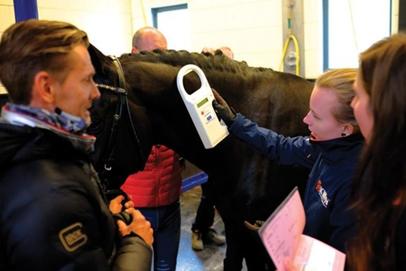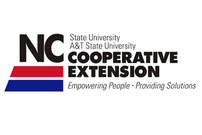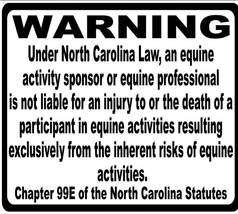Livestock and Fence laws are some of the oldest law you will encounter as an animal officer. These laws were adopted from the Royal Code and incorporated into colonial law.
Local laws and procedures specific to livestock are highly variable across the state. An agency may adhere to their local ordinance when livestock is described as an animal; others whose ordinance do not include these species may adhere to state law, some jurisdictions have enacted ordinances specific to livestock while even others do not address these animals at all.
Durham County addresses livestock within the definition of “animal” along with fees for livestock impounded at the animal shelter.
The City of Gastonia and the City of Kinston have enacted ordinances regulating, permitting and setting standards of care for livestock.
Local laws and procedures specific to livestock are highly variable across the state. An agency may adhere to their local ordinance when livestock is described as an animal; others whose ordinance do not include these species may adhere to state law, some jurisdictions have enacted ordinances specific to livestock while even others do not address these animals at all.
Durham County addresses livestock within the definition of “animal” along with fees for livestock impounded at the animal shelter.
The City of Gastonia and the City of Kinston have enacted ordinances regulating, permitting and setting standards of care for livestock.
Brands
The branding of livestock with a unique mark of the owner has been traced back as far as 2,700 BC in Egypt. Hernán Cortés a Mexican conquistador in the 1500s recorded the first brand in the western hemisphere. North Carolina’s brand laws recorded in 1854 and few have changed since.
Owners may brand their livestock and if they chose to do so they must record the brand with the local Clerk to the Board of Commissioners and register with the North Carolina Department of Agriculture and Consumer Services (NCDA&CS). North Carolina maintains minimal regulations regarding branding; regulations do require a brand be at least 3” large and located at the rear of a hip bone. Livestock ownership marks can also include ear tags, microchips, health certificates, tattoos, ear punches and other identifiers.
You may find yourself in search of an owner of livestock. You should have a basic understanding of ownership marks and how to access records.
The NCDA&CS should be one of your first contacts when handling branded livestock. Contacts with the Local cattleman’s associations, your local livestock agent and other livestock organization will prove invaluable when handling livestock situations in routine and emergency circumstances.
The branding of livestock with a unique mark of the owner has been traced back as far as 2,700 BC in Egypt. Hernán Cortés a Mexican conquistador in the 1500s recorded the first brand in the western hemisphere. North Carolina’s brand laws recorded in 1854 and few have changed since.
Owners may brand their livestock and if they chose to do so they must record the brand with the local Clerk to the Board of Commissioners and register with the North Carolina Department of Agriculture and Consumer Services (NCDA&CS). North Carolina maintains minimal regulations regarding branding; regulations do require a brand be at least 3” large and located at the rear of a hip bone. Livestock ownership marks can also include ear tags, microchips, health certificates, tattoos, ear punches and other identifiers.
You may find yourself in search of an owner of livestock. You should have a basic understanding of ownership marks and how to access records.
The NCDA&CS should be one of your first contacts when handling branded livestock. Contacts with the Local cattleman’s associations, your local livestock agent and other livestock organization will prove invaluable when handling livestock situations in routine and emergency circumstances.
Fence In and Fence Out States
North Carolina is a 'fence in' state which means the owner of livestock or poultry has the responsibility to keep their livestock fenced in and not allowed to roam.
Some western states have free range laws meaning animals are allowed to roam and it is the duty of the one who does not want the animals on their land to fence them out.
As a fence in state, the owner of livestock has the duty to keep animals confined whether or not your jurisdiction has specifically addressed livestock.
North Carolina is a 'fence in' state which means the owner of livestock or poultry has the responsibility to keep their livestock fenced in and not allowed to roam.
Some western states have free range laws meaning animals are allowed to roam and it is the duty of the one who does not want the animals on their land to fence them out.
As a fence in state, the owner of livestock has the duty to keep animals confined whether or not your jurisdiction has specifically addressed livestock.
The handling of livestock generally in most instances is in regards to public safety, such as livestock in roadways, public places and private property or animal neglect, such as starvation, injuries, unsafe conditions.
Many times officers are hesitant to address livestock neglect for various reasons such as a perceived lack of specific knowledge or political connections. Livestock owners, if not exempted by state statute or your ordinance bear the same responsibilities as any other animal owner. When you feel in doubt regarding the condition of an animal contact your Agricultural Livestock Extension agent for an expert opinion.
Many times officers are hesitant to address livestock neglect for various reasons such as a perceived lack of specific knowledge or political connections. Livestock owners, if not exempted by state statute or your ordinance bear the same responsibilities as any other animal owner. When you feel in doubt regarding the condition of an animal contact your Agricultural Livestock Extension agent for an expert opinion.
Equine Activity Liability
This article will not be an area of animal law you will enforce but your awareness of this article can help you educate any horse or farm animal owners that are not familiar with it. This can include owners met during routine duty, animal rescue organizations and similar groups. As a civil matter, horse and farm animal owners should be referred to their legal counsel and insurance carriers for more information.
In general equine sponsors, equine professionals or any other person, including corporations and partnerships, are protected from liability for the injury or death of a participant resulting from the inherent risks of equine activities.
New law not found in your book (§99E-6 through §99E-8.) added “farm activities” and included the use of cattle, oxen, bison, sheep, swine, goats, horses, ponies, mules, donkeys, hinnies, llamas, alpacas, lagomorphs, ratites, and poultry.
Farm activities include shows, fairs, exhibits, competitions, performances, parades, teaching, boarding, hunting, shoeing, examining, medicating and other related activities.
This article will not be an area of animal law you will enforce but your awareness of this article can help you educate any horse or farm animal owners that are not familiar with it. This can include owners met during routine duty, animal rescue organizations and similar groups. As a civil matter, horse and farm animal owners should be referred to their legal counsel and insurance carriers for more information.
In general equine sponsors, equine professionals or any other person, including corporations and partnerships, are protected from liability for the injury or death of a participant resulting from the inherent risks of equine activities.
New law not found in your book (§99E-6 through §99E-8.) added “farm activities” and included the use of cattle, oxen, bison, sheep, swine, goats, horses, ponies, mules, donkeys, hinnies, llamas, alpacas, lagomorphs, ratites, and poultry.
Farm activities include shows, fairs, exhibits, competitions, performances, parades, teaching, boarding, hunting, shoeing, examining, medicating and other related activities.
North - South Carolina Laws - Animal Control - Animal Protection
PO Box 3341 Eden, NC 27289






